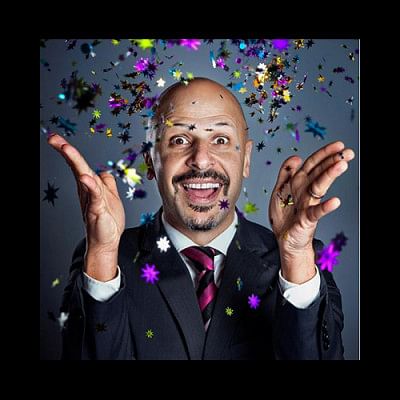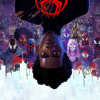Hollywood should be ashamed of the way it treats Muslim actors

Being an actor is hard. Everyone knows that the movies, while glamorous, are a difficult and stressful business to break into, no matter your background. But actors of Middle Eastern origin face an even more unpleasant prospect: they must go through the same stress and competition, but are often restricted to a range of roles that can be narrow, degrading, and offensive, reports Vox movies.
Jon Ronson has an excellent GQ profile of a group of Muslim and Middle-Eastern actors working in Hollywood. They all told him the same thing: that there were essentially no roles available to them other than terrorist villains. And the terrorist roles, unsurprisingly, were mostly just two-dimensional stereotypes — plot devices, not characters.
They describe the wearying frustration of going to audition after audition for characters with names like "Terrorist Number Four":
"My agent had called me. ‘There's this film. It's a $55 million action suspense thriller starring Kurt Russell, Halle Berry, and Steven Seagal. They want to bring you in to read for one of the parts.' I said, ‘What's the part?' She said, ‘Terrorist Number Four.' I said, ‘I don't want to do it.' She said, ‘It's three weeks of work. It pays $30,000.' " And so Ahmed read for the part.
The actors whom Ronson interviewed explained that they're stuck with an unpleasant choice: either take roles that reduce their heritage to a sort of terrorist minstrelsy, or stop working at all. That is what Ahmed Ahmed, the actor who decided to go ahead and read for the role of Terrorist Number Four in the anecdote above, found when eventually he told his agent that he he would no longer read for terrorist parts: "After that, she never called."
Before that, he said, his agent had called him three to four times a week.
In one of the most poignant anecdotes, actor Maz Jobrani described how excited he was, auditioning for a Chuck Norris movie, by a throwaway line in which Norris's character rejects the assertion that the US should "kill them all" in Afghanistan: "And the Chuck Norris character goes, ‘Now, now. They're not all bad.' And I thought, ‘Wow! A nuance!'"
Jobrani landed the part. But when he showed up on set, he found that the role was nothing like the nuanced one he had been hoping for. The director insisted that he wear a turban, for instance. When Jobrani tried to explain why that wasn't authentic for his character — "Afghans in America don't wear turbans. Plus, this guy's a terrorist. He's not going to draw attention to himself" — word came back that "the turban was mandatory."
Even the character's death was humiliating: instead of hand-to-hand combat with Norris, he was summarily shot after first running away. The experience soured Jobrani on acting. He now focuses on standup comedy instead.
This is about much more than just a handful of struggling actors
Reading about the degrading ways in which Hollywood forced these actors to reduce themselves to an ugly stereotype; I was reminded of this quote from the writer Junot Diaz, and what it feels like to not be represented in popular culture:
You guys know about vampires? … You know, vampires have no reflections in a mirror? There’s this idea that monsters don’t have reflections in a mirror. And what I’ve always thought isn’t that monsters don’t have reflections in a mirror. It’s that if you want to make a human being into a monster, deny them, at the cultural level, any reflection of themselves. And growing up, I felt like a monster in some ways. I didn’t see myself reflected at all. I was like, "Yo, is something wrong with me? That the whole society seems to think that people like me don’t exist?" And part of what inspired me, was this deep desire that before I died, I would make a couple of mirrors. That I would make some mirrors so that kids like me might see themselves reflected back and might not feel so monstrous for it.
We have all felt the sting of not living up to a cultural ideal, of not being thin enough or muscled enough or blonde enough or whatever-else enough. But what Diaz is talking about is something far more severe and painful: the experience of seeing no representation at all of who you are. Of having everything important in your life, from your family life to your hobbies to your sense of humor, erased from the public narrative as if it never existed at all. Of being made to feel like a freak — a monster without a reflection.
I kept thinking back to that Diaz quote as I read Ronson's article. But arguably, the men he interviewed have it even worse than Diaz did as a nerdy Dominican-American kid searching for a reflection of himself in popular culture. Actors like Ahmed and Jobrani are not only being deprived of mirrors for their own lives, they're being pressured into becoming part of the problem. Because they're actors in someone else's movie, they don't have an opportunity to "make their own mirrors" as Diaz did. They're stuck.
Middle Eastern and Muslim actors are rarely if ever cast to play romantic leads, or brilliant scientists, or high-school mean girls, or varsity football heroes or good wives or bad husbands. They're stuck reading for one-dimensional terrorist roles over and over again.
That's not just offensive, it's an absurd misrepresentation of American life. There are millions of Muslim citizens in this country, and the percentage of them that remotely resemble Terrorist Number Four is effectively zero. And yet the stories of those millions of people are nowhere to be found in Hollywood movies. I grew up in a small Midwestern college town, but even in my tiny high school, I had classmates from Iraq, Iran, and Pakistan. When Hollywood can't manage to match the diversity of a minuscule high school in a small town surrounded by an endless sea of cornfields, something has gone terribly wrong.
Ronson writes that the men he profiled in his story "are going through something that future generations will regard as outrageous. They're the bloodthirsty Red Indians surrounding the settlers' wagons in Stagecoach. They're the black savages in The Birth of a Nation (who were played by white actors in blackface). They are the people Hollywood will be apologizing to tomorrow."
They deserve that apology. I hope they get it. But in the meantime, maybe they could get some better parts?

 For all latest news, follow The Daily Star's Google News channel.
For all latest news, follow The Daily Star's Google News channel. 








Comments